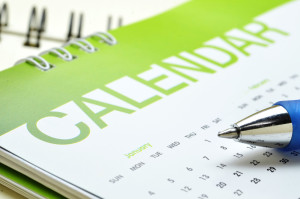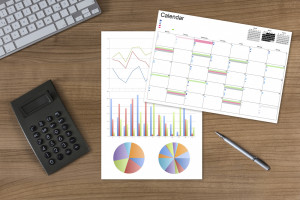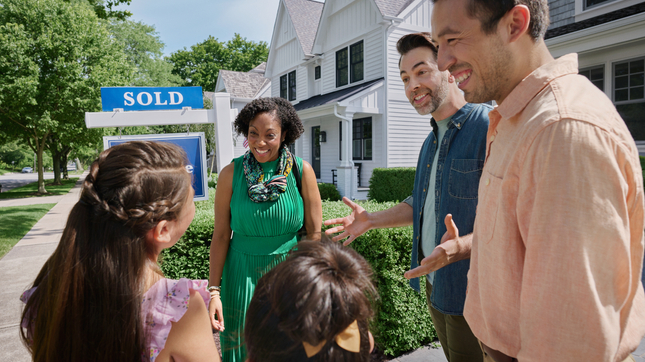How to Host a Successful Real Estate Seminar for Leads and Clients

Nancy Robbers
November 18, 2015
9 Minute Read
At some point in your career, you’ll feel the urge to educate leads on the reality of buying and selling real estate. A seminar is the ideal way to start: You’ve probably attended plenty on your own, you know what (and how) you learn from them, and you know what you’d do differently if you hosted one yourself. A real estate seminar is also an effective complement to your regular lead generation strategies.
Here are tips for hosting a successful real estate seminar.
Identify your audience

The first and most important question you should ask yourself is, “What type of real estate seminar should I host?” Your seminar should cover a topic that you could talk about in your sleep. That could be first-time home buying, helping a home sell more quickly or how to buy foreclosures. Also, look to your area and your market for topic inspiration: Are you in a warm climate where snowbirds are looking for retirement homes? Have recent gentrification efforts triggered a surge in inventory? Once you figure out the topic of your seminar, you’ll have an easier time identifying who you should invite.
Choose a partner
There are many reasons to consider enlisting a vendor partner or co-sponsor to join your real estate seminar. For one thing, they can help boost attendance by cross-promoting the event to their own invitees and through their own marketing channels. If they participate as a featured speaker, your audience will benefit from their expertise on a different aspect of the real estate journey. A co-sponsor might also have resources you don’t, such as a bigger meeting space or budget for door prizes, and can share event costs with you. When you approach potential partners to help with your seminar, make it clear that they’ll benefit from it, too.
Pick your date, time and location

On the whole, you’ll probably have more success hosting a session for first-time home buyers before summer, but people buy and sell homes 12 months out of the year, so any season can be appropriate for a general how-to seminar. Again, look to your local market for signs that it might be a good time to host your event. For example, are there time-bound federal programs or municipal incentives that you can show consumers how to leverage? When picking the date, make sure you avoid conflicts with the start of the local school year, holidays and other community events.
It’s important to consider the availability of your target audience when you pick the time of day for your event. Some attendees prefer the lunch hour, while others are more likely to attend an evening session. Weekends might also be a viable time.
Spend some time choosing your event location. Attendees must be able to find it easily and park close by, preferably for free — or it should be accessible by public transportation. The meeting space must be large enough for everyone to sit comfortably and take notes for the duration of your seminar. It should also offer adequate lighting, outlets for laptops and audio/visual equipment, and on-site restroom facilities.
Promote, promote, promote
The most important component of your seminar is attendees! You will put a great deal of time and effort — and probably money — into planning your seminar; don’t let your efforts go to waste by failing to aggressively promote it. Mine your database and send email invites to targeted leads and even past clients if your seminar topic is appropriate for them.

There is no shortage of outlets you can use to spread your message far and wide: your own website and blog, social media channels, a press release sent to local media, drip mail and direct mail campaigns, print ads in local publications, community calendars, flyers posted to local bulletin boards, and signage at your office, your partner’s office and the location of the event. Make sure you include all the key details about your seminar: its name and a brief description, date, time, location, co-sponsors and how to register. If you will provide free parking or daycare services, mention that as well so that you make it as easy as possible for people to attend.
Should you charge for attendance?
Most people are suspicious of a free lunch — “it must not be valuable if they’re giving it away” — so consider charging a nominal fee to attend your seminar. To help get bodies in the door, you can always make a buy-one-get-one offer if someone brings a friend.
What about offering incentives to attend?
There’s nothing wrong with appropriately rewarding attendees for spending time listening to you. Position your giveaway as something you always provide at your seminars. One idea is to offer a service credit if they contract with you, such as buying their home warranty. You could also offer something small, like a $5 or $10 gift card to a local coffee shop. Providing pizza, bagels or donuts at your event is always a good idea, too.

Gather your content
Once you decide on the seminar topic, identify the key points you want your audience to take away and then compile the data that leads up to and supports those points. Anecdotes and analogies give your ideas context that your audience can relate to; statistics give your ideas meaning so that your audience can use them to make fact-based decisions instead of emotional ones.
- Putting on a seminar isn’t about expounding your expertise; it’s about speaking your audience’s language to create rapport with them. Be a genial and approachable resource for the real estate information they need most.
- Share only selective and specific data; a broad real estate topic will be hard to cover in an hour or less, and your audience probably won’t take away any memorable or actionable information.
- Include an agenda. People like to know what’s happening and when.
- If you use slides, use brief, punchy text and pepper them with visuals — even short videos — to help attendees stay interested and focused.
- Remember: Your seminar is an educational opportunity first, and a lead generation tool second. Omit hard sell language or tactics.
How long should your seminar be?
To respect your attendees’ time, a shorter event is always preferable as long as you’ve given them all the information you promised to deliver. You can plan a 30- or 60-minute seminar that provides an introductory overview to a topic — or a deeper dive on one specific aspect of buying or selling — and hold it during the lunch hour or early evening. Or you can host a longer event on a Saturday afternoon and jam-pack it with information and guest speakers to make it worth your attendees’ time.
Prepare the space
It’s a good idea to arrive at your seminar venue at least an hour before the start time so that you can set up the room and be ready to greet your attendees when they arrive.
 If your seminar is outside of normal business hours, you might need to adjust the temperature of the space so that attendees are comfortable.
If your seminar is outside of normal business hours, you might need to adjust the temperature of the space so that attendees are comfortable.- The number of expected attendees will determine the seating arrangement, but a classroom setting always makes it easy for attendees to take notes. Arrange tables in rows for a large event or in a U shape when there are fewer attendees. To encourage people to sit closer to the front, place materials only in the front rows.
- Make room for a registration table and have a sign-in sheet so you can capture the number of attendees, get their contact information and request permission to send them real estate information after the seminar.
- Pre-print name tags for attendees who preregister, and have spare ones and markers on hand for walk-ins. Distribute notepads, pens and sticky notes — which make terrific branded giveaways — along with your business card on the tables in front of each chair.
- Test your audio/visual equipment — including outlets, power strips, projectors, laptops, microphones and laser pointers — as well as your Internet connection, and make sure Wi-Fi access is enabled and that you have a temporary password to share with attendees.
- Wipe down the whiteboard (use rubbing alcohol to remove the most stubborn stains) so it’s pristine and ready to use; make sure the markers write well and erasers are within reach.
- Put bottled water on ice near the registration table, and make sure to place garbage and recycle bins nearby.
- Instead of printed handouts, inform attendees that they can download digital versions for free from your website; be sure to include any hyperlinks that you reference during the seminar.
- Include a brief printed evaluation of the seminar that attendees can complete and hand in before they leave.
- Bring an assistant to help.
Presentation tips

Even if you’ve done a dozen presentations before, there’s always room to improve your skills and make your presentation more compelling and memorable.n
- Practice, practice, practice. This not only helps polish your delivery, you also get a better sense of your pace so that you don’t go over your designated time.
- Don’t read your slides; people can do that for themselves. Instead, use short slide text as a jumping-off point to have a more engaging conversation with your audience.
- Encourage attendees to ask questions.
- Make your seminar as interactive as possible. Ask the audience a question and then give a show of hands when they find it on their smartphones, conduct a poll where they write their answers on a sticky note and group them on the wall, break into smaller groups to solve a problem or sketch out a process map. Interactive exercises keep your audience participating and learning.
- Avoid real estate terms and jargon.
- Be upfront with your audience about why you’re putting on the seminar and how you hope both parties will benefit from it.
- Always thank your attendees for coming.
Don’t forget to follow up
Stay in touch with the people who attended your seminar; even if they’re not ready to buy or list with you, they’re no longer “cold” leads and you can easily keep them warm — and eventually turn them into clients — by staying on their radar.
 If you’ve already scheduled your next seminar, invite attendees and encourage them to tell anyone they know who might also be interested in attending.
If you’ve already scheduled your next seminar, invite attendees and encourage them to tell anyone they know who might also be interested in attending.- Within one to two days, send attendees a handwritten note (or email if you don’t have their street address) thanking them for taking the time to join your seminar.
- Call or email attendees and offer to answer any questions they’ve thought of since leaving the seminar. Be their go-to resource for all things real estate.
- Don’t forget to read your evaluation cards. You might receive valuable input on how to improve your event or presentation delivery, and even get topic ideas for future seminars that buyers and sellers would attend.
Seminars allow you to reach consumers who crave your real estate information and expertise before they embark on their own journey. They’re also an effective way to meet new contacts and start them on the path to becoming clients. With time and effort, you can make seminars a regular part of your marketing and lead generation tactics, and become the local real estate expert to a whole new group of buyers and sellers.
Zillow works for agents
We're here to support you and your clients on their journey home. Discover how we can help grow your business today.
Learn more
